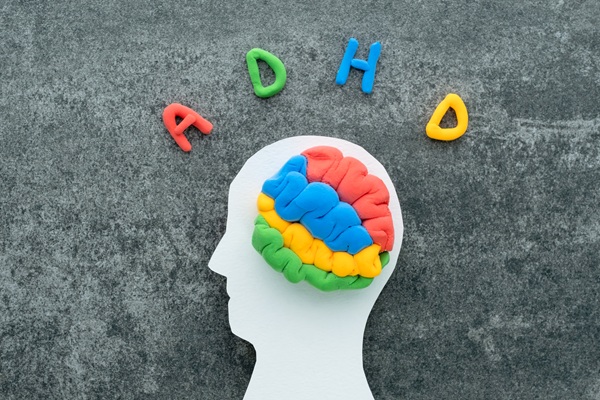How ADHD Treatment Is Tailored to the Patient

Attention-deficit/hyperactivity disorder (ADHD) is a well-researched condition, meaning there are different treatment approaches to consider. For best results, psychiatrists tailor ADHD treatment to the patient as an individual. A personalized plan considers multiple factors beyond symptoms, including co-existing conditions, response to medication, and lifestyle influences.
First-line ADHD treatments
First-line treatments for ADHD typically include prescription medications, with stimulant and non-stimulant medications forming the core of most initial strategies. These medications help regulate neurotransmitter activity in the brain, improving focus, reducing impulsivity, and managing hyperactivity. A psychiatrist will prescribe the appropriate starting point based on symptom presentation, age, medical history, and the patient’s general mental health profile. This foundation allows for adjustments over time as the patient’s response to treatment becomes clear.
While medications are often the first step, ADHD treatment is rarely one-size-fits-all. A psychiatrist may begin with a low dose and gradually adjust based on tolerability and symptom control. They will then refine treatment by considering other factors, such as prior experience with medications or sensitivity to side effects.
Stimulant and non-stimulant ADHD medications
Stimulant medications, such as methylphenidate or amphetamine-based options, are the most commonly prescribed treatments for ADHD. While fast-acting and effective, they are not suitable for everyone. Non-stimulant medications, including atomoxetine or certain antidepressants, can be a better option for patients who experience side effects, have specific medical conditions, or are at risk for misuse. A psychiatrist considers a person's overall health, lifestyle, and goals to determine the most suitable treatment option.
Tailoring ADHD treatment to the patient
A personalized ADHD treatment plan goes beyond simply choosing between stimulant and non-stimulant medications. Psychiatric care that is truly patient-focused involves evaluating multiple dimensions of a person’s life and health to create a comprehensive and adaptable plan.
Accommodating co-existing conditions
ADHD often presents alongside other mental health or medical conditions, such as anxiety, depression, learning differences, or sleep disorders. These co-existing conditions may alter the course of a patient’s treatment plan or require simultaneous management. Failure to recognize or manage these additional conditions can reduce the effectiveness of ADHD treatment. A psychiatrist must differentiate between overlapping symptoms and determine which diagnosis is contributing most to a patient’s current difficulties. Addressing co-existing conditions is critical not only for accurate diagnosis but also for effective ADHD treatment planning.
Following universal precautions
When tailoring ADHD treatment, universal precautions refer to a structured and cautious approach used to minimize risks and promote safety. This includes careful screening for a history of substance use, close monitoring of medication adherence, and the use of standardized assessments to track progress. A psychiatrist who follows universal precautions ensures that ADHD treatment remains both safe and appropriate, particularly when controlled medications are involved. These precautions are not only for those considered high-risk; rather, they form part of a responsible care framework for every patient.
Exploring therapeutic approaches
A psychiatrist may collaborate with other mental health professionals to incorporate therapy into a comprehensive ADHD treatment plan. Cognitive behavioral therapy (CBT), executive function coaching, and mindfulness-based strategies are all commonly recommended as complementary interventions. These therapeutic approaches help patients build coping strategies, manage emotional responses, and improve time management or organizational skills.
Get ADHD treatment tailored to you
ADHD treatment reaches its full potential when it is guided by a detailed understanding of each patient’s unique challenges and strengths. Through thoughtful evaluation, careful monitoring, and personalized support, a psychiatrist can develop a care plan that evolves to meet changing needs over time. Contact our Columbia office today to get started.
Request an appointment here: https://futurepsychsolutions.com or call Future Psych Solutions at (803) 335-5232 for an appointment in our Columbia office.
Check out what others are saying about our services on Yelp: ADHD Treatment in Columbia, SC.
Related Posts
Post-traumatic stress disorder PTSD treatment continues to evolve, especially for individuals who do not find enough relief with traditional talk therapy or standard medications alone. PTSD affects the brain's stress circuits, mood regulation, and sleep, which can make daily life feel overwhelming. Modern interventional psychiatry focuses on advanced therapies that help the brain reset and…
Depression can be difficult to manage, particularly for those who do not respond to traditional antidepressants and other methods. In these cases, spravato for depression offers a new and effective psychiatric treatment option. This FDA-approved medication, also known as esketamine, is administered as a nasal spray under medical supervision. It has shown remarkable results for…
Treatment-resistant depression can leave patients feeling stuck, even after exploring different medications and approaches to therapy. The good news is that TMS therapy, or transcranial magnetic stimulation, offers a new way forward. This innovative and noninvasive psychiatric treatment aims to restore healthy communication between brain regions responsible for mood, emotion, and focus, providing a path…
Ketamine therapy is an effective treatment method for treatment-resistant mental conditions, such as depression, anxiety disorders, and post-traumatic stress disorder (PTSD). However, common misconceptions may prevent individuals from choosing this treatment and obtaining the relief they need. Our team is here to dispel the three most common myths surrounding ketamine therapy so you can make an…


